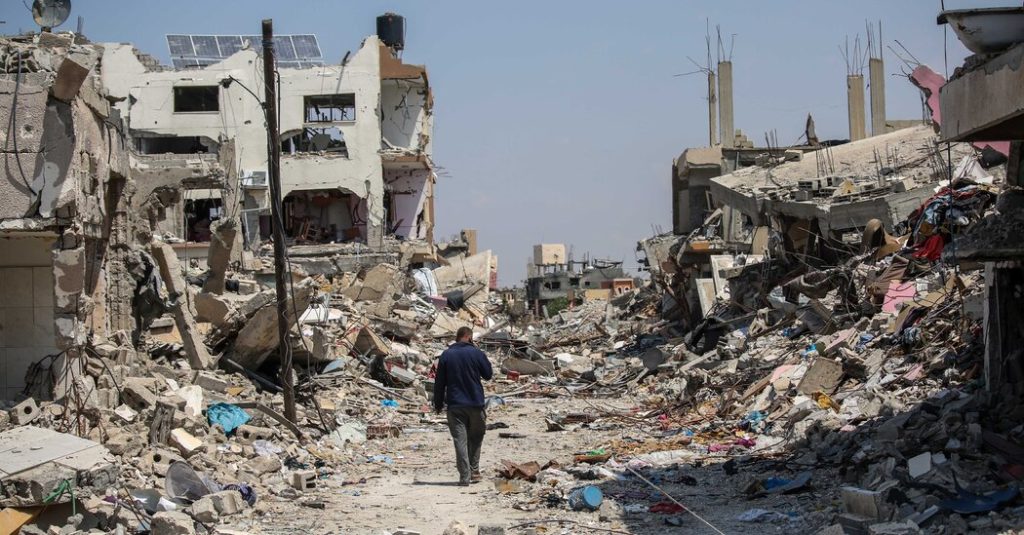The author believes that if he were Israel, he would prefer a weakened Hamas over the chaos and instability of a situation like Somalia. He acknowledges that some may cheer the harm inflicted on Israel by Hamas initially, but believes that Gazans will eventually question Sinwar for the destruction and loss caused by the conflict. The author sees this as a form of punishment for Sinwar, forcing him to take responsibility for exacerbating Gaza’s troubles, rather than allowing Israel to bear the blame. The author argues that only Palestinians can delegitimize Hamas, and despite the challenges, believes that a significant number of Gazans oppose the group.
Amira Hass, a reporter on Palestinian affairs for Haaretz, conducted phone interviews with Gazans who expressed dissatisfaction with Hamas and showed support for opposing the group. Many Gazans are depicted as cursing Sinwar for his role in leading Hamas and for the suffering they have endured. The author highlights the disconnect between journalists’ reports and the sentiments of the Gazan people, emphasizing that many feel that Hamas is gambling with their lives for unrealistic goals. This illustrates a growing sense of dissent within Gaza against Hamas’s leadership.
The author suggests that if and when Israel withdraws from Gaza and secures the release of its hostages, the Biden administration is considering working with Egypt to prevent Hamas from smuggling weapons into the region. The plan involves delivering necessary supplies to Gaza, such as food, medicine, and cement for rebuilding, with strict conditions. If any of these resources are diverted for militant activities, the borders will be closed. This strategy is intended to create a dilemma for Sinwar, forcing him to choose between returning to old tactics and risking the starvation of his people, or maintaining the cease-fire.
The author emphasizes the need for a strategy that puts the onus on Hamas to prevent further conflict, rather than allowing Israel to be blamed for the suffering in Gaza. By empowering Palestinians to challenge and delegitimize Hamas, the author suggests that a shift in leadership may be possible, despite the group’s willingness to use violence to maintain power. The goal is to create a situation where Hamas is held accountable for its actions and faces pressure from within Gaza to change its behavior.
Overall, the author advocates for a nuanced approach that involves international cooperation, diplomatic efforts, and a focus on empowering the Palestinian people. By addressing the root causes of the conflict, providing essential aid to Gaza, and limiting Hamas’s ability to engage in militant activities, the author believes that a lasting peace can be achieved. This approach aims to create a situation where all parties involved are held accountable for their actions and work together to build a more stable and secure future for the region.


